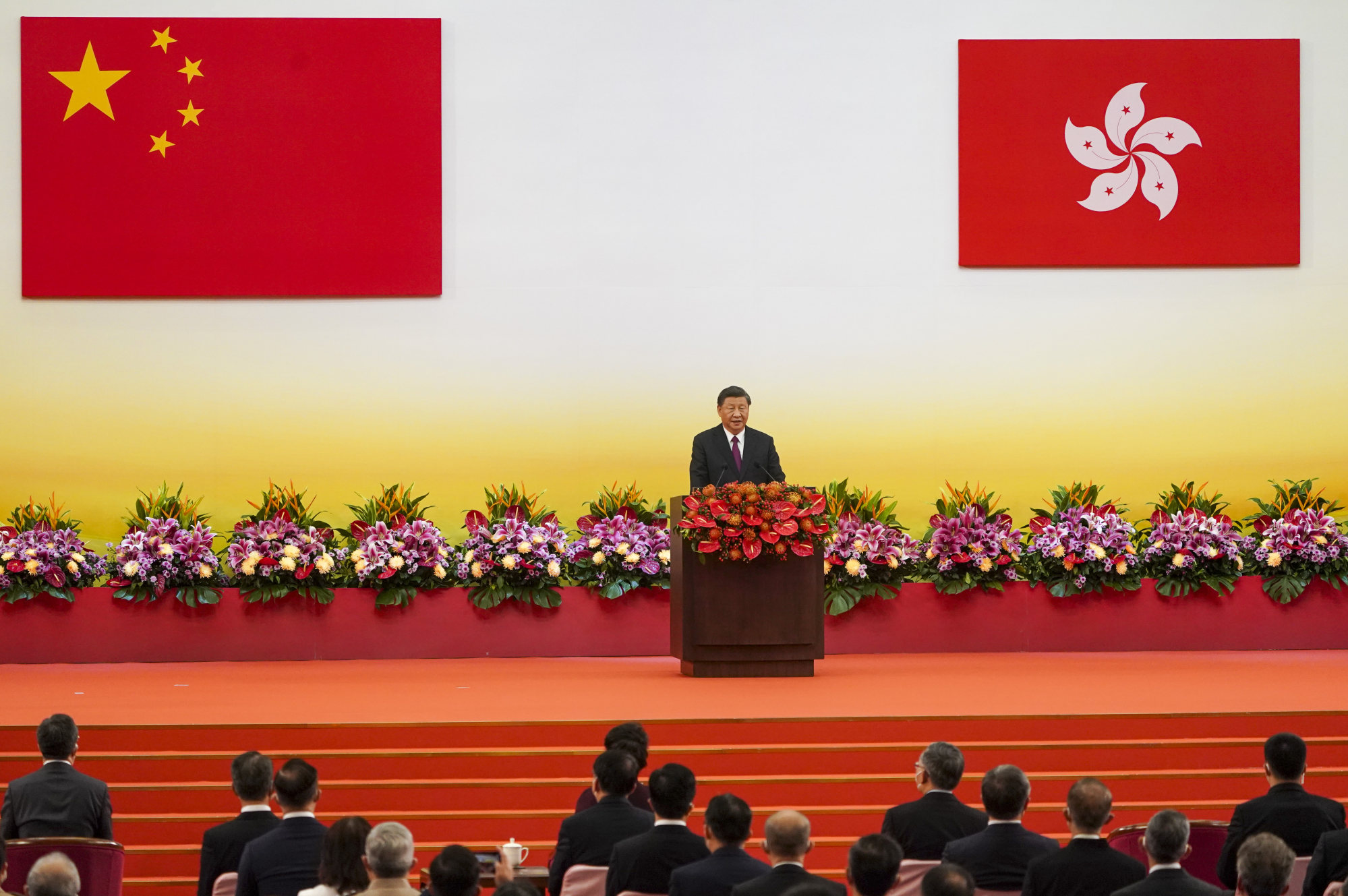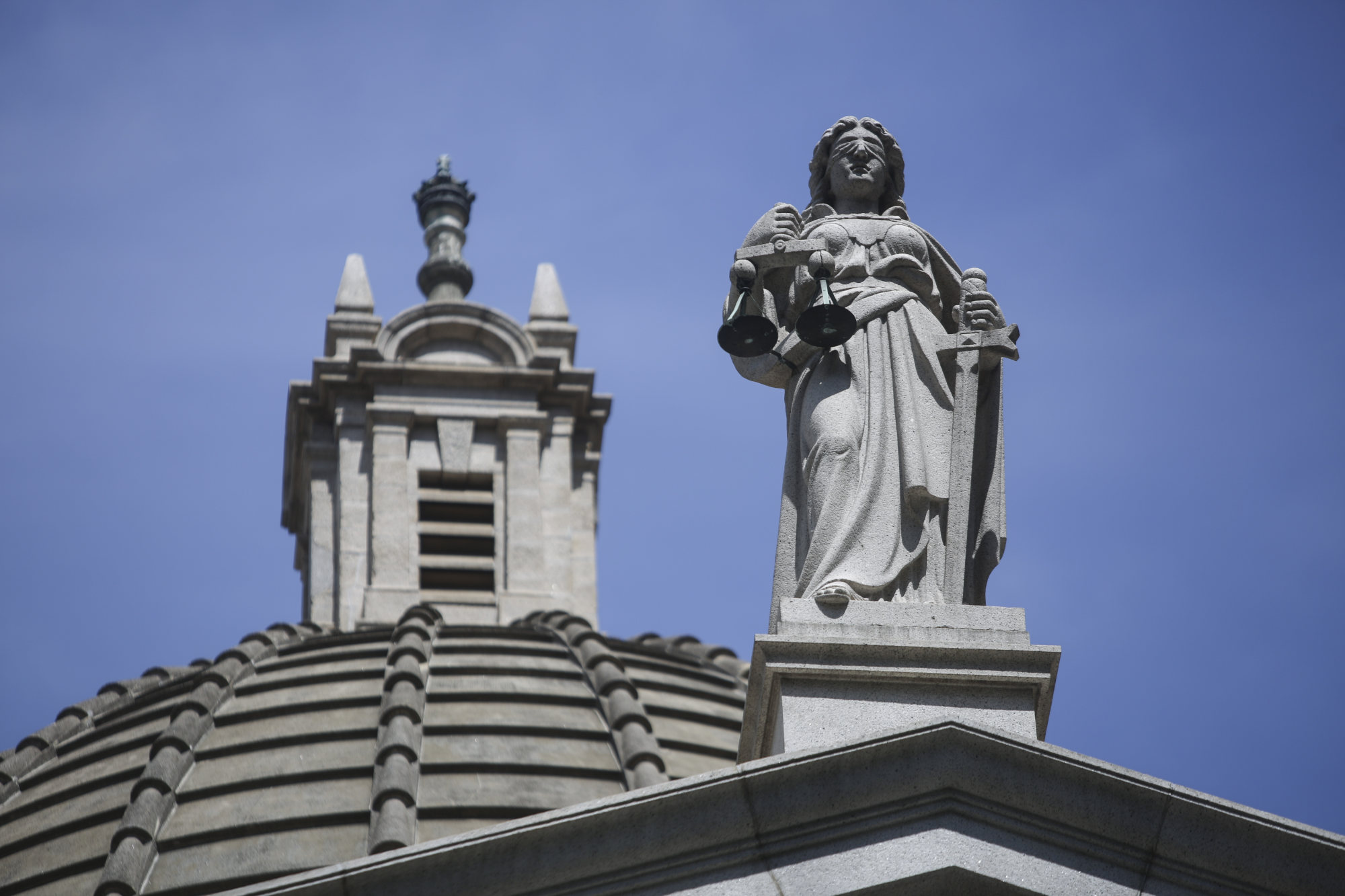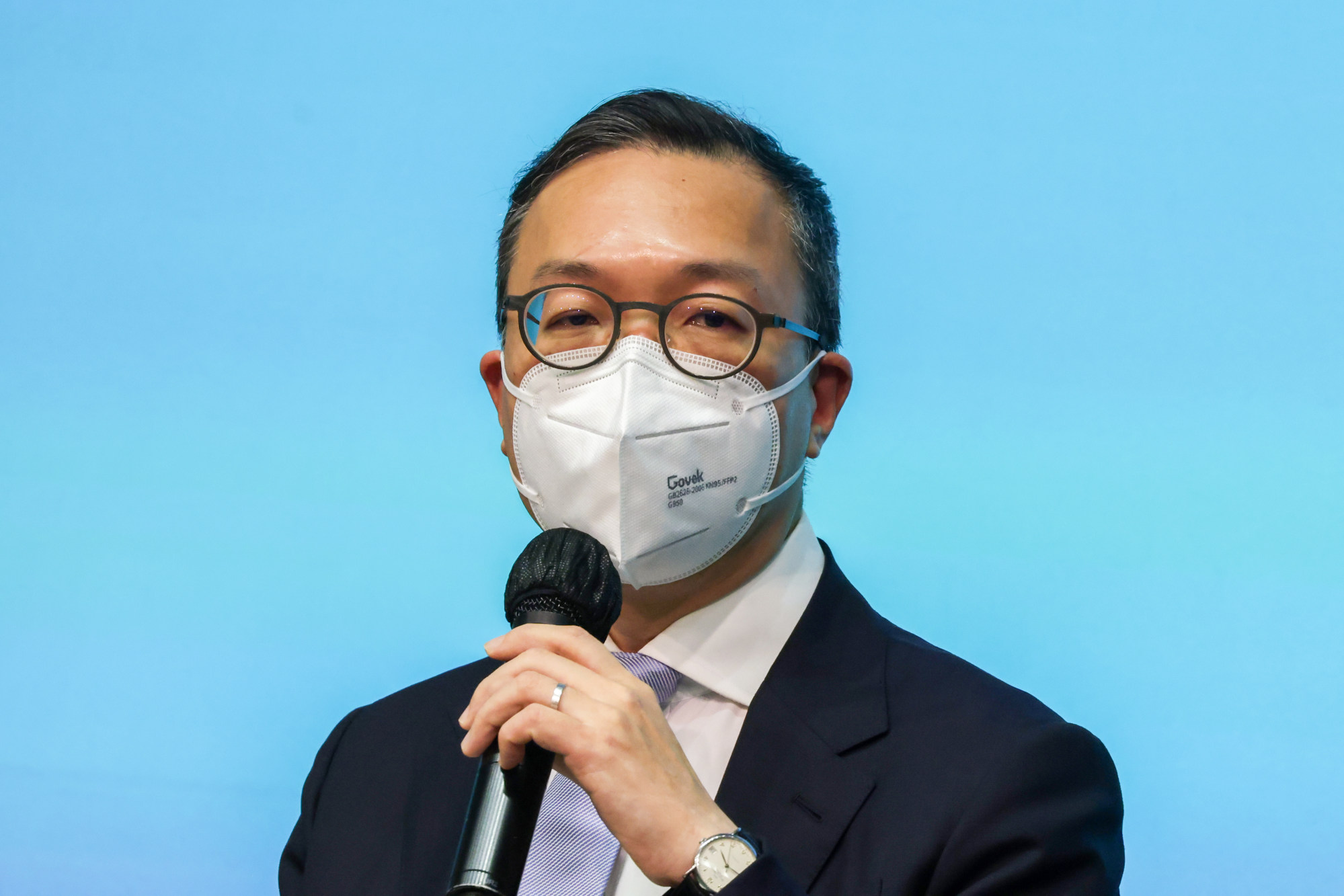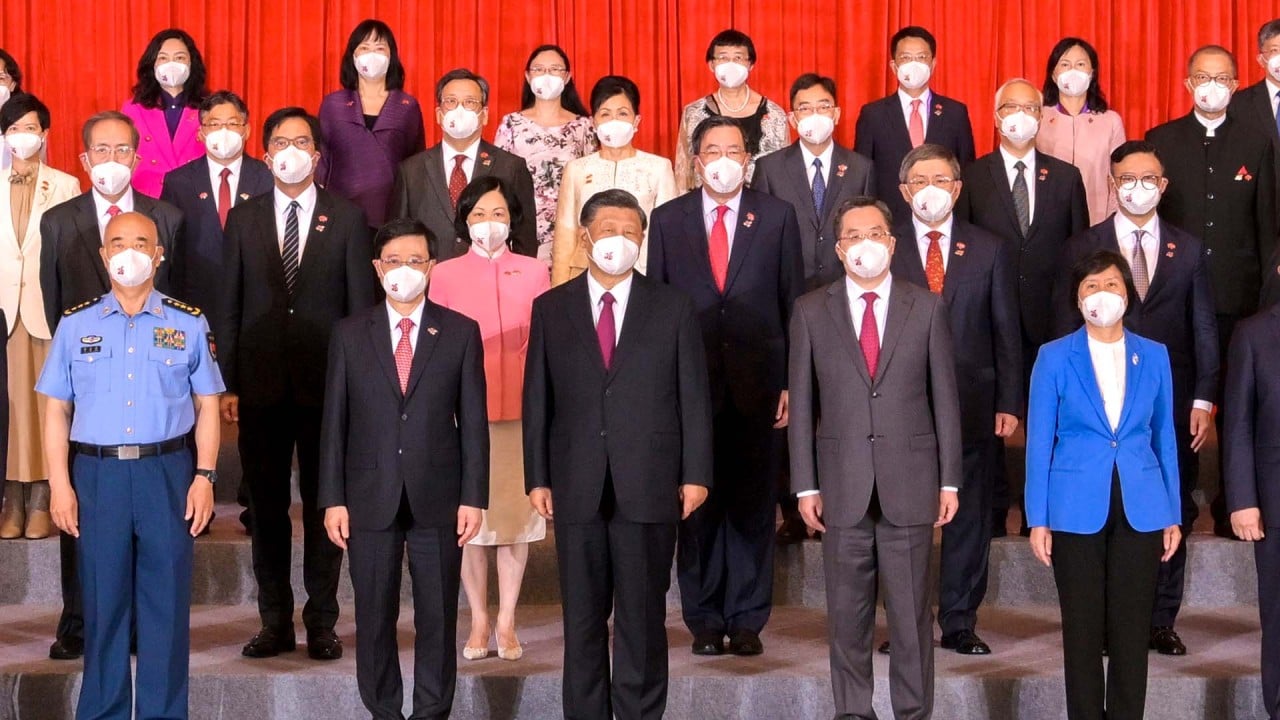
Hong Kong legal sector chiefs ‘encouraged’ by Xi Jinping’s remarks on preserving common law system and independent judiciary, but some lawyers express doubts
- In a rare move, the Chinese president acknowledges significance of letting common law system – a legacy inherited from the British colonial era – thrive
- Heads of city’s two top legal bodies, new justice chief hail Xi’s remarks
The leaders of Hong Kong’s legal sector welcomed Chinese President Xi Jinping’s emphasis on preserving the city’s common law system and independent judiciary during a tone-setting speech on Friday, although some lawyers questioned whether such promises could be delivered.
The heads of the city’s two top legal bodies called Xi’s messages “encouraging”, while the newly installed secretary for justice said the president’s assurances painted a rosy picture for the city in the long run.
They said they saw a future in which the common law tradition could be maintained, putting the city on course to be a world-renowned disputes resolution hub, as earmarked in Beijing’s 14th five-year development plan in 2021.
“His remarks map out a clear developmental blueprint for Hong Kong,” said new justice secretary Paul Lam Ting-kwok, who was sworn in by Xi on Friday.
But one senior barrister, who spoke on condition of anonymity, warned that the president could end up “consuming judges’ credibility”, if his promises were left undelivered.
“There are many, many things that a judge cannot do, [for instance, over] a harsh law that is written in clear and no uncertain terms, which a judge has no scope to interpret leniently,” said the barrister, without directly referring to the Beijing-imposed national security law.
The law bans acts of secession, subversion, terrorism and collusion with foreign forces and was imposed by Beijing in 2020 after the previous year’s social unrest, but critics have decried it as a move to stifle dissent.
In a rare move, the president on Friday acknowledged the significance of letting the common law system – a legacy inherited from the British colonial era – thrive when he delivered his keynote speech at the end of a two-day trip to Hong Kong to celebrate the 25th anniversary of the city’s return to Chinese rule.
Mainland Chinese officials had previously expressed views on how the legal system could work to Hong Kong’s advantage, helping the city integrate with the nation’s strategic development, but none as high-ranking as Xi.
Xi said: “The central government fully supports Hong Kong in maintaining its unique status and strengths on a long-term basis, in consolidating its role as an international financial, shipping and trading centre, in maintaining its free, open, and sound business environment, in retaining its common law system, and in expanding smooth and convenient linkages with the rest of the world.”

He added that the city’s judiciary had to be independent, a departure from the usual mainland rhetoric that stressed judges had to be patriots.
“[Hong Kong] adheres to the executive-led system; the executive and legislative, while the judiciary exercises judicial power independently in accordance with law,” he said.
Lau Siu-kai, a vice-president of semi-official think tank the Chinese Association of Hong Kong and Macau Studies, said Xi’s remarks could be due to attacks from Western governments on the city’s legal system.
For example, Britain withdrew two sitting Supreme Court judges from Hong Kong’s Court of Final Appeal in March, citing concerns over the national security law.
“Xi wants to stress that the rule of law is an important part of Hong Kong, while the common law contributes to the rule of law,” Lau said.

Chief Justice Andrew Cheung Kui-nung said the judiciary welcomed Xi’s affirmation of its independent judicial power and the maintenance of the common law system in Hong Kong.
“The judiciary will continue to steadfastly uphold its commitment to uphold the rule of law and judicial independence in Hong Kong guaranteed under the Basic Law,” he said.
Bar Association chairman Victor Dawes said Xi’s remarks were paramount to the city being an international financial centre as well as a disputes resolution hub.
“I am encouraged very much and hope the public can maintain confidence in the system,” Dawes said.
Law Society president Chan Chak-ming said Xi had offered reassurances on “the importance of maintaining the unique advantages of Hong Kong”.
He added: “I am pleased and confident that as the only common law jurisdiction in our country, Hong Kong will continue to play its unique role as a gateway to mainland China, and as a connector between East and West.”
Thomas Kellogg, executive director of the Centre for Asian Law at Georgetown University in the United States, said Xi’s promises had to be “more than just rhetoric”.
“Opinion polls show that public confidence in the judiciary is falling, in part because it seems clear that the courts cannot be depended on to protect basic rights, at least in national security cases,” he said.
Kellogg urged the Hong Kong government to follow up on Xi’s speech, starting by resolving the issue of lengthy pretrial detention endured by many defendants facing national security offences, and easing up on such prosecutions.
Another senior counsel, who also spoke on condition of anonymity, said: “It’s quite unrealistic to believe that the rule of law still exists when people who used to be leaders of the community – senior counsel, legislative councillors, district councillors, scholars, staunch believers of democracy, journalists, editors, teachers – nothing but highly respectable people – are all locked up behind bars.”

The barrister was referring to a raft of arrests made under the national security law, including of 47 opposition figures in a case where they were accused of subversion by organising or taking part in an unofficial primary election.
But Lam, the new justice chief, said he believed Xi’s words brought optimism. “His remarks have further consolidated our confidence in fully implementing “one country, two systems,” he said, referring to Beijing’s governing model for Hong Kong.
Lam said the city should use its edge to further explore mutual arrangements with the mainland as a common law jurisdiction, while deepening cooperation with international bodies.
“I am ready to lead my team in the Department of Justice to uphold the rule of law, while promoting our legal and disputes resolution services worldwide, to contribute to Hong Kong’s prosperity, create a better future with everyone and share the honour of the rejuvenation of our great country,” he said.


